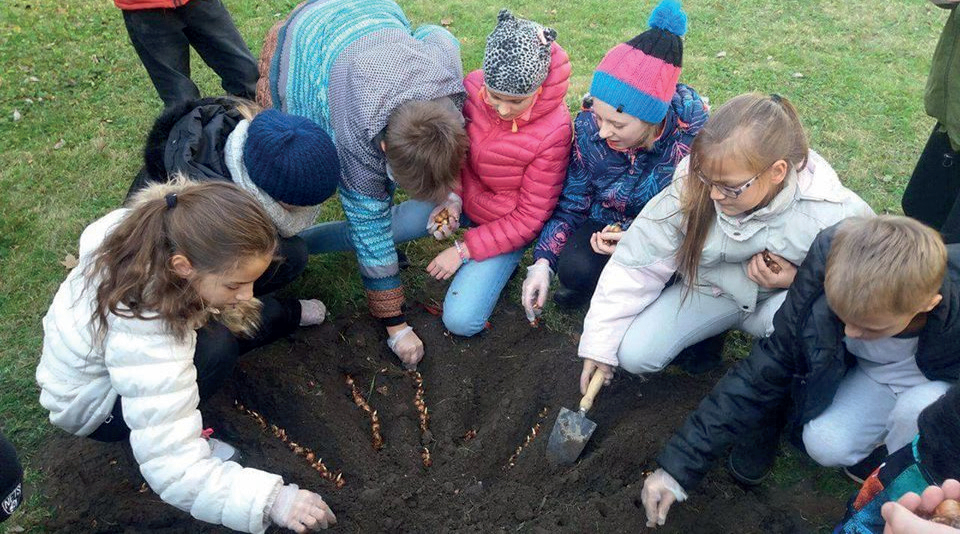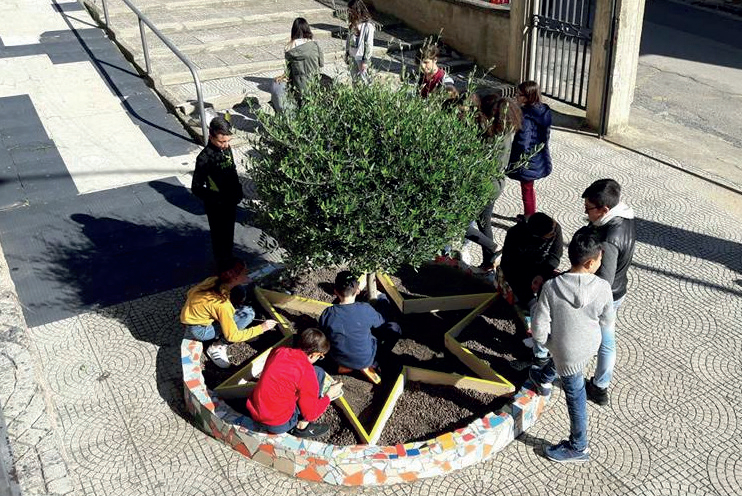
Why do we still need to talk about the Holocaust?, many people ask, many times. The remembrance project of Szembenézés Alapítvány (Facing the Past for the Future Foundation) gives an answer to that question, which is both strong and different from former ones.
Choose life instead of prejudice!
CHILDREN ONCE AND TODAY
The Crocus Project is a great example for how to bring children closer to a topic which, according to some, is ‘overdiscussed’, while others think is too much ignored. However, in the various approaches to the greatest human tragedy of the 20th century, the Holocaust, the human aspect, the horror of children’s presence and loss is often overlooked.
That may be a point of connection for today’s youth, as one and a half million children their age died then.
We need to face the past baldly, and even after that we’ll still need at least another generation looking back with new, fresh eyes and hearts so that masses can recognise and say no to the smallest signs of threat. In order to achieve that, we also need to help children relate to the topic easily, directly and on their own initiative, through their own interpretations. For instance, through a symbolic act, such as planting flowers and processing the trauma of their own direct environments, their families, and their own lives.

WITH ACCEPTANCE AGAINST PREJUDICE
That was what Facing the Past for the Future Foundation recognised in Hungary when, relying on support from the EU and in cooperation with the Institute of Educational Sciences of the Faculty of Education and Psychology, Eötvös Loránd University (ELTE PPK), invited Hungarian teachers to be involved in a European indirect educational programme. They were invited to join over a hundred thousand like-minded students and teachers remembering the child victims of the Holocaust, using the tools of experiential education – and also serving the youth’s personality development through the novel transfer of historical knowledge.
Since 2006, the Crocus Project (named so after the flowers planted) has inspired participants to do work which relies on teachers’ and students’ independence and creativity, encourages them to act, and which, besides increasing the young participants’ historical knowledge concerning the subject matter, also increases their sensitivity. Facing the Past for the Future Foundation seeks to make more and more participants realise how nice it is to live in diversity and being good friends.
PROJECT PHILOSOPHY
With its yellow petals blooming in spring, the crocus reminds us of the Star of David, the obligatory badge of the Jewish during the war and a symbol of prejudice and exclusion, as well as of life itself. The motto of the project is – Flowers against Prejudice and Aggression – suggests respect for the victims: the project seeks to prevent children from becoming victims and to make them reject the harmful prejudice which led to the death of their peers. That is because the nature of the genocide that began almost eight decades ago and caused the death of 1.5 million children does not change and prejudice necessarily leads to murders. If we don’t step up against prejudice, today’s children can be victims again.
Chairwoman and project leader of Facing the Past for the Future Foundation, Ágnes Pap says that was exactly why it was obvious for them to say yes when the Irish initiator approached them in 2015, and they joined the project in the academic year 2016-2017.
“We want to live in a society in which people accept and respect each other, even if they are different, and they consider each other’s thoughts and opinions important, even when they differ from their own. Mostly relying on volunteers, for ten years our foundation - whose founders and officials include an economist, a rabbi, a teacher, a lawyer and a researcher - has sought to increase the number of those who think this way, who judge the world based on facts and don’t believe lies, legends and half-truths. People who have freely chosen, freely assumed and steady identities. So we established dialogue-oriented forums based on getting to know, understanding, acceptance and sympathy, where the participants learn about the facts in an easy-to-understand, empathetic and positive manner - thus also contributing to becoming accepting and inclusive, even to themselves.”
According to the Chairwoman and project leader, the Crocus Project can spread this philosophy, and it may help like-minded teachers and youths find each other, support understanding the essence of and enhancing the European idea, and help participants become self-conscious citizens, ones who can protect both themselves and others.
THE STRUCTURE OF THE CROCUS PROJECT
Teachers of educational institutions (including kindergarten teachers) establish volunteer Crocus Teams in their own respective institutions, and in autumn, they plant the crocus bulbs together. Then they follow their own work plans. They attend sensitising programmes, do research, prepare exhibitions, display boards, films, process readings, meet witnesses of the era, make interviews, attend various programmes or, as it happens, organise programmes themselves. They prepare for the memorial day of the Hungarian victims, they present the experiences gained and their achievements in their own environment (e.g. school, local community) and on the Internet. The work conducted at the institutions continues year by year; the old ones transfer their experiences to newcomers.
In the project they adapted the initiative of the Irish coordinator to the Hungarian conditions, and besides funding, the implementation of the Crocus team projects, based on the above, are also supported through services. Such services are recommended lesson plans, workshop plans, filmographies, reference literature, exhibition manuals, theatre pedagogy, visual pedagogy, intercultural and museum pedagogy programmes, holding workshops, consulting, operating a common website, as well as personal meetings and workshops. This is how individual and shared work, the transfer of experiences and best practices are supported. Similarly to their former projects, as Ágnes puts it, they rely on creditable and “cool” scientists, artists and other excellent professionals, public figures and witnesses of the era to sensitise young people and help them learn about historical facts and connections.

WITH FLOWERS AGAINST AGGRESSION
In 2018 the Hungarian involvement in the Irish project has come to its third year. From segregated areas to elite schools in the capital, from kindergartens to secondary schools, in towns on both sides of the borders, this year already 1,500 flowers make a stand for life and against the stupidity and meanness of prejudice and exclusion.
“It’s important that we should show respect to the victims, but not feeling pity but determination”, said Ágnes Pap, emphasising the general objective of the project. “We should actively prevent even more people from falling victim to prejudice. Let’s not letthem turn us against each other.” •
|
Responses of students from secondary vocational schools in Miskolc and in Piliscsaba, participating in the programme: “You can’t be sure everyone is who you believe them to be.” “Only I can change my own opinion.” “Prejudice is harmful; a lot of people who seem to be bad are actually good people.” |
Interview: ZITA KEMPF
Last modified: 17-04-2019















